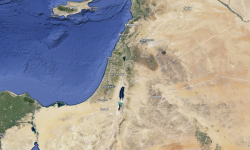
Curious, by Jo Hood, is a monthly column. Jo is the Visionary of mainly Ministries, an organisation that remains curious as they resource and support local churches, church plants, missional communities, and Christian schools to connect with whānau in the community.
Every time we think of you, we thank God for you. Day and night you’re in our prayers as we call to mind your work of faith, your labour of love, and your patience of hope in following our Master, Jesus Christ, before God our Father. It is clear to us, friends, that God not only loves you very much but also has put his hand on you for something special. When the Message we preached came to you, it wasn’t just words. Something happened in you. The Holy Spirit put steel in your convictions.
You paid careful attention to the way we lived among you, and determined to live that way yourselves. In imitating us, you imitated the Master. Although great trouble accompanied the Word, you were able to take great joy from the Holy Spirit! - taking the trouble with the joy, the joy with the trouble.
1 Thessalonians 1:2-6 (The Message)
What does it mean to provide a joy-filled community of belonging? Paul gives us something to consider in his letter to the church at Thessalonica.
Reading this passage, we notice that the believers had been through great trouble at the time when the gospel was preached to them.
In 1 & 2 Thessalonians For You, Ligon Duncan writes:
This is a joy that does not wither in the soil of hardship – in fact, oftentimes it blooms – because the Spirit-filled believer knows that suffering can take nothing from them that they truly need. It is a joy that survives even if our world has been turned inside out and upside down. And since it is only the Spirit who can give such joy, Paul knew that these Thessalonians had really been converted. He knew that God had really come in power with the gospel because, in their afflictions, these new Christians continued to display an evident, manifest joy.
Our faith does not render us immune from such pain; it does not mean that the pain is not real or that we won’t feel it. But it does bring us joy in such pain, alongside the sorrow. Whatever we lose, we cannot lose Christ, and so we cannot lose salvation.
Have you known hardship? Maybe, like me, Jo, you are a widow (or a widower). Perhaps you have experienced hardship in health through the presence of cancer or as a result of an accident. In your whānau/family, there might be unemployment, violence, alcohol or drug abuse.
Hardship in our lives makes us sensitive to the journey of others, whether the person is experiencing a similar hardship or something completely different.
What sets our experience apart is the joy we find despite the circumstances. Our faith cannot be taken from us.
How is our joy expressed? While our circumstances cannot be trivialised, we can speak of our hope in Jesus. We heard from one Team Leader,
We love mainly music! There isn’t a single person who’s attended a session with us who hasn’t been moved by it. Whānau/families and Team Members alike.
Another group reported,
I write from our mainly music where one of our team has added craft during eat/chat/play. Simple options for tamariki/children to participate in. Jan has a wonderful way of caring for and connecting with māmā/the mums who stop by and sit to help their tamaiti/child. One opened up about her abusive ex-husband. When she left the marriage, her father became her protector and biggest supporter. Mel and tamariki/the children felt safe with him around. However, unfortunately, her dad died, creating a space for her ex to restart his harassment.
With the craft keeping her fingers busy, she sensitively shared with Jan, who went to the church leadership to ask for financial help.
With the church agreeing to clear her outstanding bills along with groceries, Mel found support. Jan and her husband then helped Mel understand all the legalities around tamariki/child custody and accompanied her to Family Court. Giving Mel a Bible and the devotional Word for Today, Jan spent time showing Mel how to read a Bible.
Today, Mel comes to church, and her tamariki/children are part of the kids’ church.
Through engagement in people’s lives, we can show what joy looks like. Not being swamped by our own circumstances, we can show what joy looks like.
Go a bit further – Engage
Hardship in our lives makes us sensitive to the journey of others, whether the person is experiencing a similar hardship or something completely different. What sets our experience apart is the joy we find despite the circumstances. Our faith cannot be taken from us.
What joy have you found when your faith has been tested?


